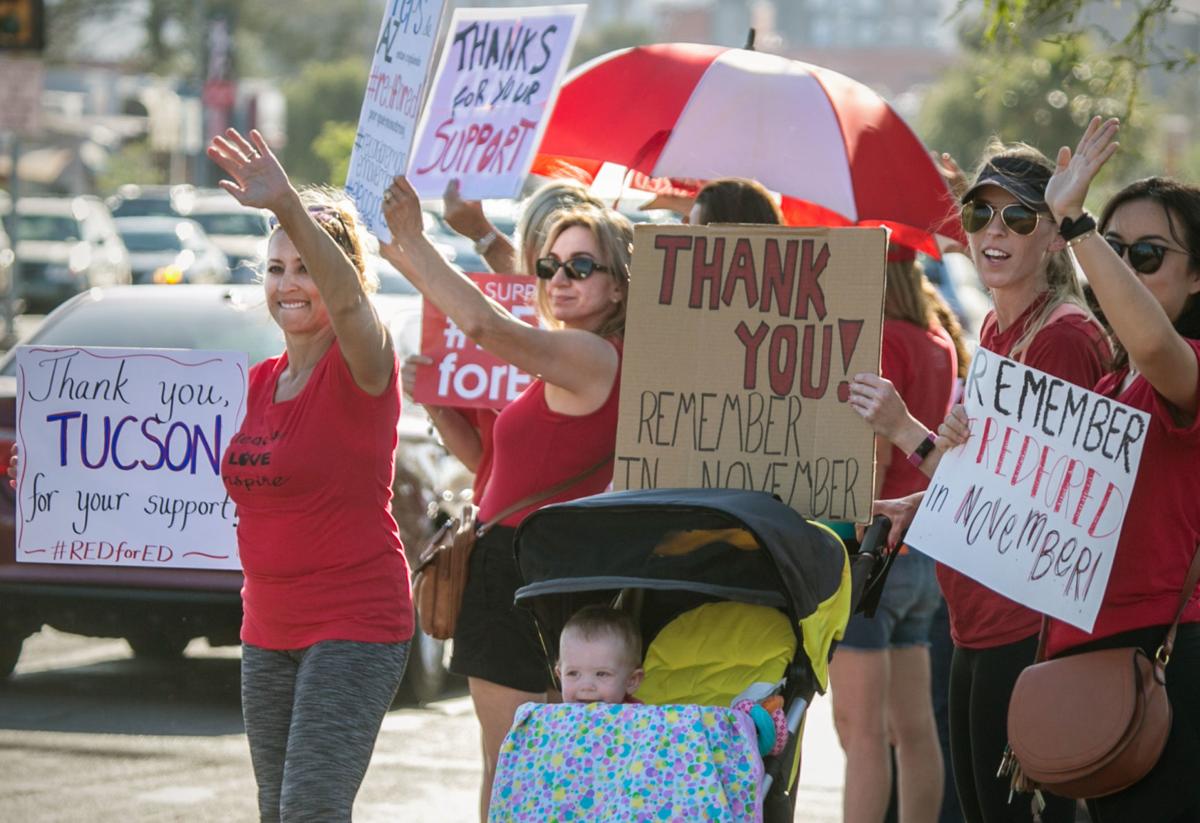PHOENIX — A Republican-dominated legislative committee decided Wednesday that voters don’t need to be told that if they approve a business-backed tax-limiting measure the state could be foregoing more than $5.2 billion a year in revenues.
There is no dispute that the constitutional amendment being pushed by the Arizona Association of Realtors would bar lawmakers from expanding sales taxes to cover any services that are not now subject to the state’s 5.6 percent levy. Even legislative budget staffers concluded that if all services were taxed it could generate $5.2 billion a year in new revenues on top of the about $10 billion now raised in state sales and income taxes to provide public services, about half of that for education.
At a hearing Wednesday, Devin Del Palacio, a member of the Tolleson Union High School board, said taking future sales taxes off the table and foregoing those revenues should be included in the brochure to be mailed out to all 3.6 million registered voters that explains all ballot measures.
“I would like to know the amount of money that could have been used for teacher salaries, better schools or any other priority,” he told members of the Legislative Council. “I feel that this information could be critical to the decision-making process to allow voters to make an informed decision.”
But the Republicans who have 10 votes on the 14-member panel, instead sided with political consultant Wes Gullett who represents the Realtors who gathered the signatures to put the issue to voters.
“That’s a speculative, hypothetical thing that might happen in the future and has nothing to do with this amendment,” he told lawmakers.
The Republicans on the same committee also approved what Democrats say is a biased description of an initiative to hike income taxes on the state’s most wealthy to help fund education.
Most significant, the verbiage adopted by the GOP majority would tell voters that if they approve the #InvestInEd measure to boost taxes on those earning more than $250,000 a year that they also will be increasing their own taxes, even if they earn far less.
That is based on a conclusion that the measure also would effectively repeal a 2015 law that indexes the state’s income tax brackets to inflation. That law is designed to protect taxpayers at all income levels from “bracket creep” where they wind up in higher tax brackets — and paying higher rates — simply because their income keeps pace with inflation.
Democrats said that reading of the initiative is legally flawed. They say nothing in the measure wipes out indexing.
More to the point, they argued that telling voters — they believe incorrectly — that taxes will go up on everyone is designed to deter people from approving the measure that is designed to raise $690 million a year for education.
Republicans also insisted on putting language in the ballot brochure describing the increase in tax rates on high-income Arizonans as from 76 to 98 percent.
“That’s designed to scare people with big numbers,” complained state Rep. Ken Clark, D-Phoenix, calling the verbiage “clearly biased.” He acknowledged the increase is mathematically accurate but said it would be more honest simply to say that the actual tax rate on incomes of more than $250,000 is going from 4.54 percent to 8 percent, and 9 percent on amounts over $500,000.
“I think we crossed the line into advocacy,” said state Sen. Martin Quezada, D-Glendale. “And I think that’s unfortunate.”
By law, the Legislative Council is required to provide “impartial” descriptions of all ballot measures. That is the wording that shows up in mailboxes of voters ahead of the Nov. 6 general election to help voters learn about the issues and make up their minds.
Clark said one thing voters need to know is how much money is involved.
He pointed to a report by legislative staffers that says if the state’s 5.6 percent sales tax applied to health care, it would generate close to $2.1 billion. Another $1 billion would flow into state coffers if the levy applied to professional, scientific and technical services.
And the balance is made up in other categories like personal care — think haircuts, nail salons and lawn care — as well as personal finance, which includes investment advice.
“I think the public would need that context to be able to make a decision here,” Clark said.
Gullett had a different take.
“This just protects the Arizona taxpayer from having to pay a huge new tax on things that aren’t taxed today,” he told lawmakers. He said speculation on what might be taxed in the future without the constitutional amendment — and the amount of money such taxes might raise — is irrelevant and not a proper subject to put in the ballot pamphlet.





